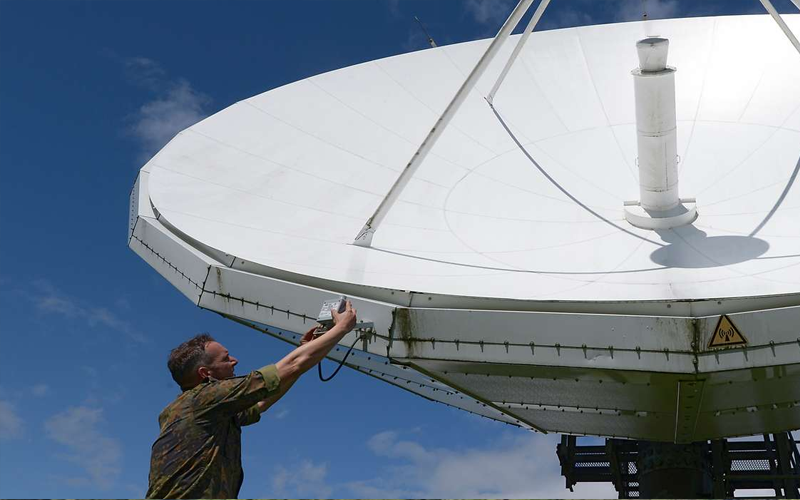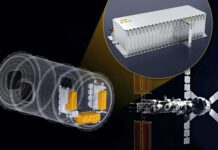
Airbus Defence and Space announced that Germany’s armed forces, the Bundeswehr, had awarded the company a €2.1 billion contract to develop SATCOMBw 3, the country’s next-generation secure military satellite communications system.
The Budget Committee of the German Bundestag (federal parliament) approved the funding for the SATCOMBw 3 project on 26 June. The project is being financed from the Bundeswehr special fund and the defense budget. On 4 July, the Bundeswehr announced that the contract to deliver on the project had been awarded to Airbus.
“After the success of the SATCOMBw Stage 2 programme, which we have been delivering since 2009, this latest contract reinforces our strategic partnership with the Bundeswehr, providing them with a greatly enhanced secure milsatcom capability that is future-proofed into the 2040s,” Airbus Defence and Space CEO Michael Schoellhorn said in a statement.
The SATCOMBw 3 contract includes the design, construction, and launch of two geostationary satellites. The two six-tonne satellites will replace the 2.44-tonne SATCOMBw 2 COMSATBw 1B and 2B satellites, which were launched aboard Ariane 5 rockets in 2019 and 2010. The two satellites had an original operational life span of 15 years.
In addition to the two new geostationary satellites, the SATCOMBw 3 contract includes the upgrade of the existing ground segment and the system’s operation for a period of 15 years.
In a 26 June press release, the Bundeswehr stated that SATCOMBw 3 operations would commence in 2027.
In executing the contract, Airbus Defence and Space will primarily utilize German suppliers, especially for key project elements such as payload guidance and integration, solar arrays, and overall spacecraft operation. The space technology company OHB will be a key partner in this project.
The strategic importance of SATCOMBw
According to the Bundeswehr, the SATCOMBw communications system is “indispensable for self-sufficient and autonomously deployable communications and information services.” The SATCOMBw 3 project is also intended to ensure the country’s communications obligations to NATO are fulfilled.
“At a time when Western democracies are challenged and where the European institutional space ecosystem is struggling, we are excited and grateful to develop and build this leading-edge system,” said Schoellhorn. “Long-term partnerships are crucial to guaranteeing essential sovereignty and capability and protecting our armed forces in the increasingly unstable geopolitical environment.




